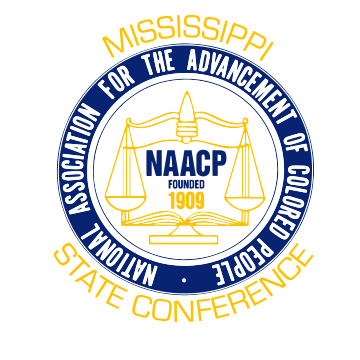Cash-Strapped Schools Face 3rd-Grade Crisis
2015/05/18 – With bottom-barrel state funding and limited resources, Mississippi educators will spend the next three months trying to change the fate of more than 5,600 students doomed to repeat the third grade.
Nearly 15 percent of public school third graders last month failed a statewide reading assessment, which according to a new law taking effect this year, requires they be held back. Click HERE for The Clarion-Ledger’s interactive map of the third-grade pass/fail rates.
Some students, such as limited English learners, can get an exemption to advance to the fourth grade. The rest have two more chances to pass the test — once on Monday; once this summer — before committing themselves to another year in Grade 3.
Faced with the challenge of swollen third-grade classrooms and a legion of remedial readers, educators want to slash the current number of children poised for retention. So they’re providing intense instruction, holding summer reading camps, and reassigning teachers where they’re needed most.
It might not be enough. School district administrators say they could make more gains if the state Legislature had fully funded public schools, as required by yet another law that largely has been ignored for the past two decades.
Passed in 1997, the Mississippi Adequate Education Program allocates state dollars to school districts based on an equitable funding formula. But the state has underfunded the program by more than $1.7 billion the past seven years alone, including this year’s shortfall of $211 million.
Lawmakers have argued the formula is flawed and that they give public schools as much as their own general fund budget allows. An ongoing court challenge and an upcoming ballot initiative both seek to force the Legislature to fully fund MAEP. Their outcomes remains unclear.
Nearly half the 3rd graders failed
Meanwhile, the third-grade crisis looms especially large in places like Yazoo City, whose school district relies on MAEP for nearly two-thirds of its annual budget.
The majority black, Delta district has operated with a cumulative $10 million state shortfall since 2009, according to figures from the Mississippi Association of Educators.
Nearly half its third graders failed last month’s reading test. They did so despite two years of hard-hitting instruction, delivered after teachers realized this particular group of students lacked appropriate literacy skills coming into second grade, said Yazoo City Schools Assistant Superintendent Lucille Lovette.
The district used federal dollars to hire a reading interventionist, who serves its sole upper elementary school – one of the largest in the state. But test results reveal those students need more help.
“If we were fully funded by MAEP,” Lovette said, “we could hire at least an additional interventionist who could serve each grade. We’re making do with the personnel we have.”
Many of Yazoo City’s roughly 100 third graders who failed the test did so by narrow margins. With intense remediation through the district’s two summer reading institutes, Lovette hopes at least half will pass the test on the second or third try and advance to the fourth grade.
Even then, they’ll likely need additional help. The law requires districts to provide specialized instruction to students who repeat the third grade and to those who just barely made it to fourth.
All of it comes at a cost. To deliver remedial instruction, districts must use highly-qualified literacy teachers or interventionists, whose salaries average about $60,000 per year, according to figures from the Mississippi Department of Education. The law caps at 40 the number of students each interventionist can handle, meaning districts will need 140 of them next year if the current numbers hold.
That’s $8.4 million statewide.
“With at least $300 million going down the corporate tax cut-tax break drain each year, and a Rainy Day fund brimming to overflow, there is no rational excuse to fail or refuse to fund the cost of the interventionists that must be provided to every student with a reading deficiency under the 2013 Literacy Act that was passed by the Legislature, signed by the Governor, and which they arm-in-arm laud as the key to bringing Mississippi out of the abyss of inadequate education,” said Mike Sayer, staff attorney for the education-advocacy organization, Southern Echo, in an email.
‘We’re going to need more’
Also facing daunting odds is the Holmes County School District, where the majority of third graders at two of its elementary schools – Goodman-Pickens and Williams Sullivan – failed the reading test. The only other school in the state with a more than 50-percent fail rate was Webb Elementary in Greenville.
Holmes County also will offer a summer reading program, open to all K-5 students but specifically geared toward those who failed the test. The district also will reassign teachers and reallocate resources to better serve struggling readers where they’re at.
But they lack the budget to do what’s really needed, said Superintendent Powell Rucker, whose district has operated with a $11.5 million cumulative shortfall since 2009.
“That’s a disadvantage of not having the funding we need,” Rucker said. If the district had enough money, “I would make sure to reduce the size of classrooms to 10 students and hire educators able to relate to at-risk students.”
Rucker said he doesn’t know how much impact this summer’s remediation efforts will have on the roughly 100 third graders who failed the reading test. He’s hopeful they’ll at least make a dent on the numbers but said the district needs more than a dent. It needs a miracle.
So, too, he said, does the state, which ranks at or near the bottom on most national comparisons of educational standards due in large part to its disproportionate share of socioeconomically disadvantaged students.
More than 71 percent of Mississippi’s public school children come from low-income families, the highest rate nationwide, according to the U.S. Department of Education, which bases its numbers on free-and-reduced-price lunch program eligibility rates.
Numerous studies have shown poverty adversely affects academic achievement. The Clarion-Ledger’s own analysis of third-grade reading pass rates confirms this: Elementary schools with higher participation in the free-and-reduced lunch-program generally had lower pass rates on the assessment.
“If you really want to help disadvantaged children,” Rucker said, “we’re going to need more.”
Source: The Clarion-Ledger



